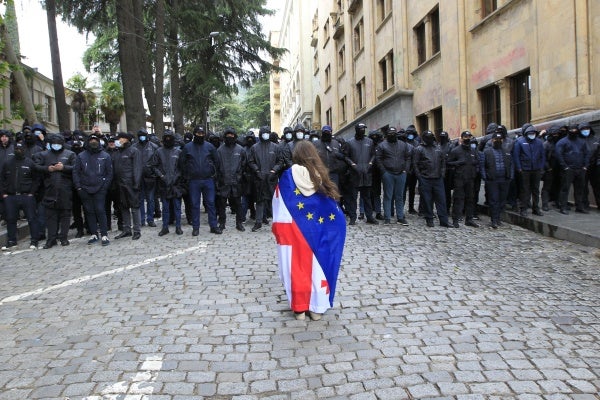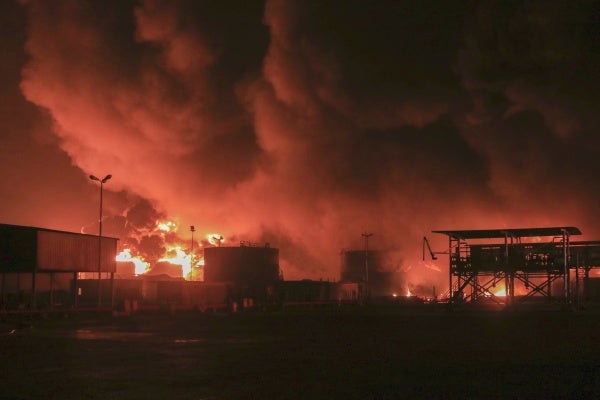Lire la version en français / Lea la versión en español
Georgia is heading for parliamentary elections in October – with warning signs of political violence.
There’s a clear pattern of harassment and intimidation of activists, independent media, and government critics – and authorities don’t seem to be investigating cases seriously.
From late April through June, unidentified assailants violently attacked more than a dozen activists. New HRW research describing the details makes disturbing reading.
In many cases, victims suffered head injuries and other injuries requiring hospitalization. In most incidents, small groups assaulted people in public places with witnesses and CCTV cameras nearby. The evidence is available if police want to look at it, but something seems to be holding them back.
While police have officially opened investigations into most of the incidents, they have not identified or arrested any suspects. No victims have been asked to come to the station to identify suspects in a line-up.
Many survivors had spoken out against the “foreign agents” bill, which the ruling Georgian Dream party introduced in parliament in April and adopted six weeks later. The bill – now law – undermines fundamental rights, specifically the right to freedom of association.
It targets civil society and independent media by forcing certain nongovernmental groups and media outlets to register as “organizations serving the interests of a foreign power.” Ironically for a law that supposedly aims to reduce foreign influence in Georgia, it was inspired by similar legislation in Russia, as was a follow-up, anti-LGBT bill.
Ruling party leaders also implied they would use it against critics in the lead-up to October’s parliamentary vote.
Public outrage at the “foreign agents” bill led to some of the largest peaceful protests Georgia has seen in recent decades – which in some instances were met with unjustified police use of violence to disperse them. The bill also prompted harsh criticism from Georgia’s international partners. The government pushed the abusive legislation through regardless.
The fear now is that impunity for these earlier attacks risks encouraging further political violence and instability in the run-up to parliamentary elections in October. Getting away with violent assaults on dissenters so far sends thugs the message they’ll likely get away with it again.
If authorities want to signal something different – that they don’t condone politically motivated violence – they need to get effective, credible investigations moving.












